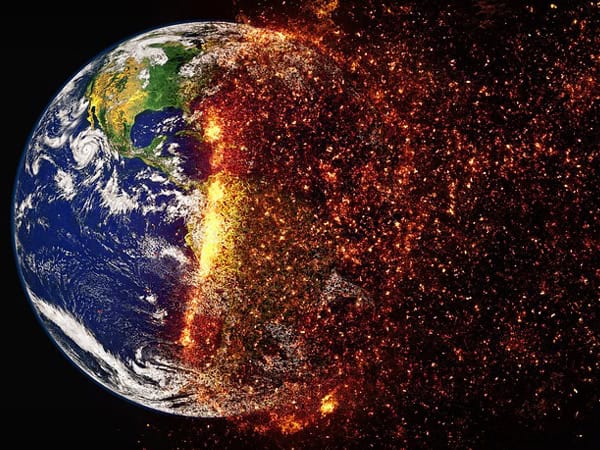London: While global warming is deemed as the direct result of man-made activities, a new research has claimed that the climate change phenomenon was caused by the evolution of Earth’s first animals more than 500 million years ago.
The study revealed that some 520-540 million years ago, animal life evolved in the ocean and began breaking down organic material on the seafloor, leading to more carbon dioxide (CO2) and less oxygen in the atmosphere.
In the 100 million years that followed, conditions for these earliest animals became much harsher, as ocean oxygen levels fell and CO2 caused global warming.
“Like worms in a garden, tiny creatures on the seabed disturb, mix and recycle dead organic material — a process known as bioturbation,” said Tim Lenton, Professor at Britain’s University of Exeter.
“Because the effect of animals burrowing is so big, you would expect to see big changes in the environment when the whole ocean floor changes from an undisturbed state to a bioturbated state.”
This impact of bioturbation on global biogeochemistry likely affected animal evolution through expanded ocean anoxia, high atmospheric CO2 levels and global warming and possibly contributed to a number of mass extinction events.
“The critical factor was to realise that the biggest changes happen at the lowest levels of animal activity,” said Sebastiaan van de Velde, of the Vrije Universiteit Brussel in Belgium.
“This meant that the first bioturbators had a massive impact.”
According to the researchers, this realization was the “missing piece of the puzzle”, and allowed them to construct a mathematical model of Earth around that time to look to the changes caused by these early life forms.
“We knew that warming occurred at this point in Earth’s history but did not realise it could be driven by animals,” they said.
The researchers noted that “there is an interesting parallel between the earliest animals changing their world in a way that was bad for them, and what we human animals are doing to the planet now”.
Lenton said: “We are creating a hotter world with expanding ocean anoxia (oxygen deficiency) which is bad for us and a lot of other creatures we share the planet with.”
IANS

